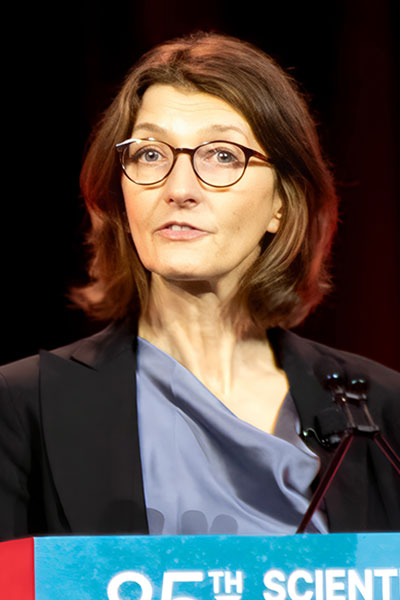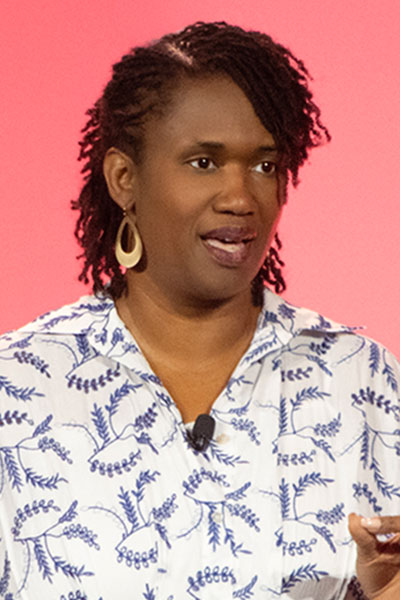Speaking at the opening session of the 85th Scientific Sessions, past recipients of the Pathway to Stop Diabetes® grants detailed how these American Diabetes Association® (ADA)-funded early-career awards enabled them to produce innovative scholarship that has contributed to the diabetes community.

Sarah A. Tishkoff, PhD, received a 2019 Pathway grant for her project, “Genetic risk factors for adult-onset diabetes in populations of African Ancestry.” Since receiving the grant, Dr. Tishkoff, the David and Lyn Silfen University Professor in Genetics and Biology at the Perelman School of Medicine, University of Pennsylvania, has sought to redress a dearth of research on Africa-focused human genomic studies while exploring how differences in diet, climate, and exposure to infections might affect susceptibility to diseases such as type 2 diabetes.
For example, she detailed how tested populations of the Fulani people exhibited a high baseline inflammation level, which might indicate protective genetic factors against diseases such as malaria but subsequently leaves them more vulnerable to hypertension and diabetes.
Dr. Tishkoff said this type of research benefits the wider community.
“There is an urgent need to include diverse populations in human genomics research,” she said. “Inclusion of global populations may lead to development of therapeutics that are effective in all populations.”

How the human brain might contribute to glucose regulation was the focus of the 2017 Pathway grant by Sarah Stanley, MB, BCh, PhD. Her “Central nervous system regulation of glucose metabolism” used novel techniques to analyze glucose-sensing neurons in the amygdala and examine their relationship to the development of diabetes.
Dr. Stanley, Assistant Professor of Medicine, Division of Endocrinology, Diabetes & Bone Disease and Neuroscience, Icahn School of Medicine, Mount Sinai, detailed how she and her teams use murine models, radio waves, and magnetic fields to explore how neurons in peripheral circuits of the body might also regulate glucose levels.
“Both the brain and the peripheral nerves are really important in glucose regulation,” Dr. Stanely said. “By using new tools to get a better understanding of the brain regions and the circuits that connect metabolic organs, we may be able to leverage this and harness neural circuits to treat type 2 diabetes.”
Rachel W. Goode, PhD, received a 2025 Pathway grant for her proposal, “Preventing Type 2 Diabetes in Black Adult Women At-Risk for Binge-Eating Disorder.”

Dr. Goode, Associate Professor at University of Social Work and Psychiatry, University of North Carolina School at Chapel Hill, noted how patients will often respond to a type 2 diabetes diagnosis by self-imposing restrictive dieting, feeling a sense of deprivation, and then bingeing.
Her research is partnering with communities to design individualized programs for Black emergent-adult women to instill healthful relationships with food and to reduce type 2 diabetes risk.
“Our patients are navigating eating disorders, and we need to be there to support them,” Dr. Goode said. “We are going to position ourselves for long-term transformation, justice, and equity in our health outcomes.”
Applications are now open for the 2026 Pathway to Stop Diabetes grants. Submissions are due by July 23, with notifications scheduled for November 17. The program offers two award categories, both for early-career researchers. More details about the award categories can be found on the Call for Nominations document.
On-demand access to recorded presentations from the 85th Scientific Session will be available to registered participants following the conclusion of the meeting in Chicago, from June 25–August 25.

Watch the Scientific Sessions On-Demand after the Meeting
Extend your learning on the latest advances in diabetes research, prevention, and care after the 85th Scientific Sessions conclude. From June 25–August 25, registered participants will have on-demand access to presentations recorded in Chicago via the meeting website.

